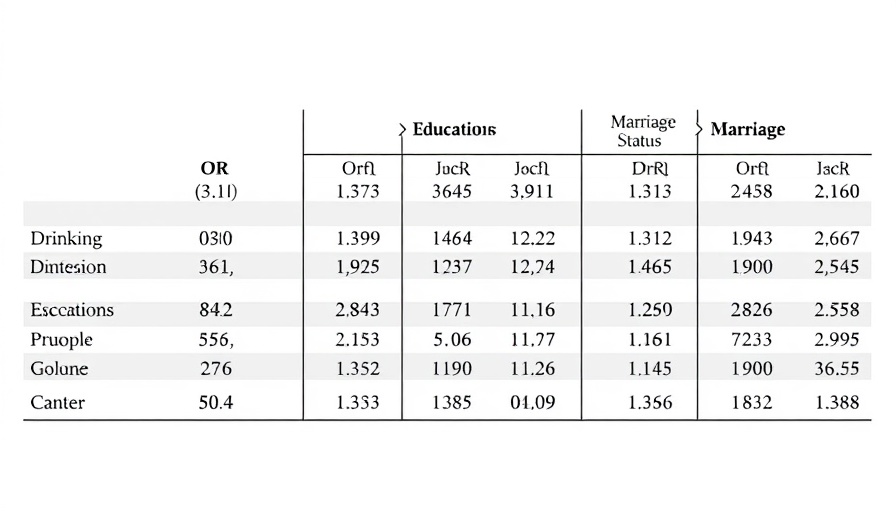
New Insights on Frailty and Cardiovascular Health
Frailty is increasingly recognized as a complex health issue, particularly affecting older adults. Recent research has delved into its relationship with cardiovascular health, as measured by Life's Crucial 9 (LC9), a robust metric integrating both physical and mental health dimensions. This article synthesizes findings from the NHANES study, analyzing the implications of LC9 scores on frailty, a finding critical for health-conscious individuals looking to enhance longevity through actionable insights.
The Role of Life’s Crucial 9 in Assessing Frailty
The study involving 28,557 participants revealed a curvilinear association between both Life's Essential 8 (LE8) and LC9 scores with frailty. The findings indicated that lower scores in both metrics are linked to higher frailty rates, but a complex relationship emerges as scores increase. This nuance holds potential significance for developing targeted interventions as individuals aim to maintain robust health as they age.
Understanding the Curvilinear Relationship
The research employed smooth curve fitting, revealing not just a linear but a nonlinear correlation between LE8/LC9 scores and frailty. The inflection points identified within the analysis—53.12 for LE8 and 68.89 for LC9—highlight a pivotal threshold where the strength of association diminishes, guiding health practitioners to focus on preventive measures below these levels. This suggests that proactive health management is most effective when scores are optimized below critical thresholds.
Telomeres and Their Relationship to Aging
Telomere biology plays a crucial role in understanding aging and frailty. As chromosomes age, telomeres shorten, leading to cellular senescence or apoptosis. This biological process can directly impact frailty levels. Recent studies suggest that telomerase activation and effective DNA repair mechanisms can keep telomeres longer, thus potentially delaying physical decline. Incorporating telomere supplements could be a beneficial strategy for those keen on maintaining vigor beyond their years.
Broader Implications for Longevity and Wellness
For individuals aged 30–55, staying informed about telomere research and the mechanisms of cellular longevity can translate to significant benefits for overall health. Understanding how lifestyle choices affect telomere length—such as diet, stress management, and physical activity—equips health enthusiasts with the tools needed for longevity-focused living. Maintaining chromosome health is not just a scientific concept; it's a practical aspect of defining quality of life.
Actionable Insights for Enhanced Well-being
Given the connections between cardiovascular health measures and frailty, health-conscious individuals should consider regular evaluations of their LC9 and LE8 scores. Tailored dietary and lifestyle interventions, particularly those incorporating telomere-regulating practices, may improve not just physical health but may also preserve mental well-being, ultimately enhancing life quality and longevity.
Conclusion: The Path Forward
The intersection of cardiovascular health and frailty sheds light on critical pathways toward enhanced longevity. As ongoing research continues to unfold, individuals—and the broader healthcare community—must prioritize integrated health approaches that consider not just age but the cellular mechanisms underlying aging. By embracing these insights, health-conscious adults can actively engage with their longevity journeys.
 Add Row
Add Row  Add
Add 




 Add Row
Add Row  Add
Add 


Write A Comment